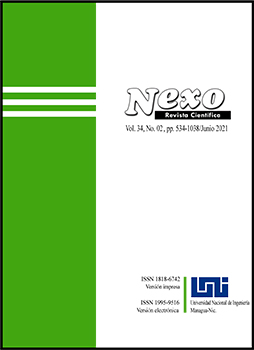Detecting the potential lead, zinc, and gold orebodies by integrating remote sensing, geochemical, and geophysical studies in Dehshir (Iran)
DOI:
https://doi.org/10.5377/nexo.v34i02.11593Keywords:
Orebody, Remote sensing, Geochemistry, Dehshir, IranAbstract
Nowadays, exploration management, increasing productivity, and reducing exploration costs are among the most important issues in the detailed exploration stage of orebodies. A geographic information system (GIS) is an effective tool for gathering, storing, analyzing, updating, generating, integrating, and displaying geographic data and land reference. ArcGIS is one of the efficient and powerful GIS computer programs with numerous capabilities such as generating databases, managing the data and information, integrating the information, and generating different outputs in the form of various maps, charts, and tables. In this study, different exploratory layers with different types of information from the Dehshir orebody area were integrated into this software to determine the spread of metal and introduce the parts with higher anomalies for subsurface exploration. For this purpose, we used the information from remote sensing, topography, geomorphology, geology, and geophysics, and geochemistry studies in the form of exploratory layers.
Downloads
1086
Downloads
Published
How to Cite
Issue
Section
License
The authors who publish in Nexo Scientific Journal agree to the following terms:
- Authors retain the copyright and grant the journal the right of the first publication under the license Creative Commons Attribution License, which allows others to share the work with a recognition of the authorship of the work and the initial publication in Nexo Scientific Journal.
- Authors may separately establish additional agreements for the non-exclusive distribution of the version of the work published in the journal (for example, in an institutional repository or a book), with the recognition of the initial publication in Nexo Scientific Journal.
- Authors are allowed and encouraged to disseminate their works electronically (for example, in institutional repositories or in their own website) before and during the submission process, as it can lead to productive exchanges, as well as earlier and greater citation of published works.










